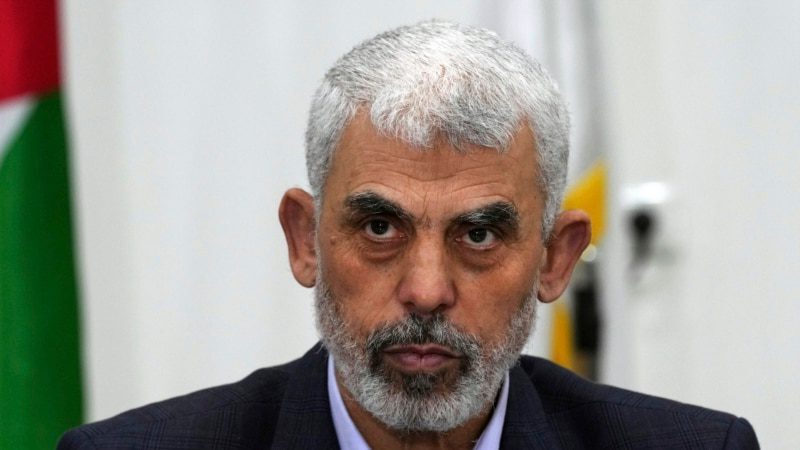BTN News: Yahya Sinwar’s ascent to the leadership of Hamas marks a pivotal moment in the ongoing and deeply entrenched conflict between Israel and the Palestinians. Sinwar, a figure known for his staunch militancy and deep ties to Hamas’s military wing, assumed a formal role as the supreme leader of the organization after the death of Ismail Haniyeh, a leader who had previously steered Hamas from a more diplomatic position abroad. The appointment comes amid an unprecedented escalation in the conflict, one that Sinwar himself helped orchestrate on October 7, leading to the bloodiest chapter in the history of this decades-long struggle. With Israel vowing to continue its military campaign until Hamas is annihilated and hostages are released, Sinwar’s leadership is poised to redefine the group’s tactics and the broader dynamics of the Middle East.
Sinwar’s leadership has already signaled a shift towards a more uncompromising stance. Unlike Haniyeh, who occasionally hinted at the possibility of a two-state solution and maintained diplomatic relations from his base in Qatar, Sinwar is a figure of hardened militancy. Having spent over two decades in Israeli prisons, where he reportedly admitted to killing numerous Palestinian collaborators, Sinwar’s reputation is built on brutality and an unyielding commitment to the armed struggle against Israel. This legacy of violence has endeared him to the more radical elements within Hamas and established him as the de facto leader even before Haniyeh’s death.
The attack on October 7, which Sinwar is believed to have masterminded along with the elusive military leader Mohammed Deif, saw Hamas militants carry out a devastating assault on Israel. The operation, which resulted in the deaths of approximately 1,200 people and the capture of around 250 Israeli hostages, marked a significant escalation in the conflict. The ferocity of the attack and its aftermath underscored Sinwar’s strategic acumen and his willingness to push the boundaries of violence to achieve Hamas’s goals. The Israeli response has been equally fierce, with Prime Minister Benjamin Netanyahu vowing to continue the war until Hamas is completely dismantled.
However, Sinwar’s rise to power and the subsequent intensification of the conflict raise questions about the future of Hamas and its ability to navigate this crisis. The group’s leadership has historically demonstrated remarkable resilience, surviving the targeted assassinations of key figures like Sheikh Ahmed Yassin and maintaining internal cohesion. Yet, the current situation is unprecedented. The scale of Israel’s retaliatory campaign, which has reportedly claimed the lives of tens of thousands of Palestinians and devastated much of Gaza, presents a challenge unlike any Hamas has faced before. The loss of senior leaders such as Haniyeh and possibly Deif, combined with the relentless Israeli strikes, could erode the organization’s operational capabilities and its hold over Gaza.
Despite these challenges, Sinwar remains defiant. He has steadfastly adhered to demands for the release of thousands of Palestinian prisoners, the complete withdrawal of Israeli forces from Gaza, and a durable ceasefire, even as the death toll continues to rise and the humanitarian crisis deepens. This hardline approach reflects Sinwar’s belief in the necessity of armed resistance and his skepticism of diplomatic solutions, a stance that has found support among many Palestinians who see little hope in negotiations with Israel.
Sinwar’s leadership style is shrouded in secrecy, with the Hamas leader maintaining a low profile and reportedly hiding deep within Gaza’s extensive network of tunnels. His absence from the public eye complicates efforts to gauge his decision-making process or predict his next moves. However, analysts suggest that while Sinwar will likely continue to dictate overarching policy and critical decisions, the day-to-day operations of Hamas, particularly in the West Bank and abroad, will be managed by the group’s exiled leaders in countries like Qatar, Lebanon, Turkey, and Iran.
This decentralized leadership structure could both benefit and hinder Hamas. On one hand, it allows the organization to continue its operations despite the loss of key figures. On the other, it risks creating divisions within the group, especially if Sinwar’s hardline approach conflicts with the more pragmatic views of leaders in exile. The recent assassination of senior Hamas figures, including Saleh Arouri in Beirut and possibly Mohammed Deif, highlights the vulnerability of the group’s leadership and could force a shift in strategy as the remaining leaders attempt to adapt to the changing circumstances.
As Sinwar navigates these challenges, the possibility of a surprising move remains on the table. Some analysts suggest that Sinwar, known for his unpredictability, could take a step that might alter the course of the conflict, though what form this could take is unclear. Whether this means a shift towards a more aggressive military campaign, a strategic retreat, or an unexpected diplomatic overture is unknown. What is certain, however, is that Sinwar’s leadership will continue to shape the trajectory of the Israeli-Palestinian conflict in the months and possibly years to come.
In conclusion, Yahya Sinwar’s rise as the supreme leader of Hamas signifies a turning point in the Israeli-Palestinian conflict. His reputation as a militant hardliner and his role in the recent escalation of violence underscore the challenges that lie ahead for both sides. As Israel continues its campaign to dismantle Hamas, the future of the organization and the region hangs in the balance. Sinwar’s ability to steer Hamas through this crisis, maintain its cohesion, and respond to the relentless pressure from Israel will determine not only the fate of the group but also the broader dynamics of the Middle East conflict.


